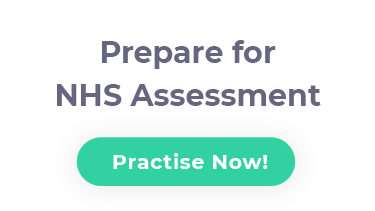NHS Scientist Training Program Online Preparation – 2025

What Is the NHS Scientist Training Program (STP)?
The NHS Scientist Training Program (STP) is a comprehensive three-year initiative in the United Kingdom aimed at cultivating skilled healthcare scientists. The program comprises a combination of on-site training, part-time master’s degree studies, and a final competence assessment. During on-site training, participants gain practical experience in a clinical setting, while the part-time master’s degree provides academic depth relevant to their chosen specialty. Upon successful completion, trainees are eligible for registration with the Health and Care Professions Council (HCPC), a vital professional accreditation.
The STP offers a variety of specialties, allowing applicants to align their focus with areas such as clinical biochemistry and medical physics. The training emphasizes the development of scientific skillsets, including patient care, literature analysis, quality control, adherence to procedures, and proficiency in relevant technologies. Transferable skills such as effective communication, active listening, independence, organizational abilities, and safety awareness are also integral to the program.
Recent changes in the recruitment process, implemented in 2022, include specialty restriction to one choice, a shift to online Situational Judgment Tests, and alterations in long-listing and short-listing procedures. The recruitment process now involves Pearson VUE for the Situational Judgment Test, algorithm-based short-listing, and the elimination of the “Hold Offer” option. These changes reflect the evolving nature of the program and its commitment to selecting and developing highly competent healthcare scientists.
Overview of the STP Situational Judgment Test (SJT)
Situational Judgment Tests (SJTs) are widely recognized tools for assessing candidates’ behavioral and cognitive abilities within work-related contexts. The STP SJT requires candidates to rank multiple responses based on their appropriateness in various simulated scenarios, gauging their decision-making and problem-solving skills.
The SJT is a crucial component of the selection process for the Scientist Training Programme. Prior to the designated exam window, you will receive two automated emails from Pearson VUE containing vital details for completing the SJT. These emails, including your web username and temporary password, will be sent to the email address provided in your Oriel application. It is essential to check your junk/spam folder for these emails.
Follow the instructions in the emails to complete the login process for the Pearson VUE booking web pages and wait for the SJT window to open, with specific details available on the NSHCS website. Upon logging into your account via the “sign in” button, you can access the assessment titled “Scientist Training Programme SJT” (exam series code NSHCS-SJT) and take it once from the opening date until the exam deadline.
The assessment begins with a brief tutorial to acquaint you with the controls and layout of the screens and concludes with a short survey. Additionally, you have the option to access a sample test using the provided link at any time before your actual test for further preparation.
The STP Situational Judgment Test is a 50-minute psychometric assessment consisting of 25 scenarios designed to simulate challenges encountered in the scientific training field. Each scenario has between three and eight responses, and you will be asked to rate how appropriate the response is in relation to the situation. In total, there are 146 responses, which require individual ratings. Keep in mind that some applicants who have been approved can have 63 minutes to take this exam.
Sample STP SJT Question
Here is an STP SJT sample question. Scenario: You are working in a laboratory as part of the Scientist Training Programme. Your colleague, Sarah, consistently arrives late to team meetings, affecting overall productivity and collaboration.
How would you respond to this situation?
- Confront Sarah during the next team meeting about her consistent tardiness.
- Discuss the issue privately with Sarah, expressing concerns about the impact on team dynamics.
- Report Sarah’s behavior to your supervisor without addressing her directly.
- Ignore the issue and hope that Sarah’s punctuality improves over time.
- Organize a team-building session to address communication and collaboration issues within the team.
Please rank the above responses from 1 (most appropriate) to 5 (least appropriate) based on how you would handle the situation.
What Skillset Is Needed for STP Success?
Achieving success on the Scientist Training Programme’s Situational Judgement Test requires a combination of specific skills that go beyond academic knowledge. Here are the key skills needed to perform well on the SJT:
- Decision-Making Skills:
The ability to make effective and ethical decisions in various workplace scenarios is fundamental to the SJT. Candidates should showcase sound judgment and problem-solving skills.
- Interpersonal Skills:
Strong interpersonal skills are crucial for navigating professional relationships. Effective communication, collaboration, and conflict resolution contribute to successful performance on the SJT.
- Critical Thinking Skills:
Candidates must demonstrate critical thinking skills to analyze situations, identify potential issues, and make informed decisions. This skill is vital for addressing complex scenarios presented in the test.
- Professionalism Skills:
Maintaining a high level of professionalism is essential. This includes adhering to ethical standards, displaying integrity, and acting in a manner consistent with the expectations of a healthcare scientist.
- Time Management Skills:
The SJT often has time constraints for each scenario. Effective time management ensures that candidates can read, analyze, and respond to each situation within the allocated timeframe.
- Adaptability Skills:
The ability to adapt to different workplace situations is crucial. Candidates should demonstrate flexibility in their responses, considering the dynamic nature of healthcare environments.
- Communication Skills:
Clear and effective communication is paramount. Candidates should convey their thoughts and decisions concisely and professionally, both in writing and potentially in interpersonal scenarios.
- Empathy Skills:
Demonstrating empathy towards colleagues, patients, or other stakeholders is essential. Candidates should consider the impact of their decisions on others and show an understanding of diverse perspectives.
- Ethical Awareness Skills:
A strong awareness of ethical considerations is essential for the SJT. Candidates should be able to identify and navigate situations that involve ethical dilemmas in the context of healthcare.
- Reflective Practice Skills:
The ability to reflect on personal experiences and learn from them is valuable. Candidates who can draw upon past experiences to inform their decision-making are likely to perform well on the SJT.
- Stress Management Skills:
Remaining composed under pressure is crucial. The ability to manage stress during the test allows candidates to think clearly and make effective decisions.
- Teamwork Skills:
Collaboration and teamwork are often assessed in the SJT. Candidates should demonstrate an understanding of their role within a team and the importance of collective success.
By honing these skills through practice, real-world experiences, aptitude, and self-reflection, candidates can enhance their performance on the Situational Judgement Test and demonstrate the qualities sought after in successful healthcare scientists.
SJT Technical Requirements (FAQ)
To ensure a smooth and successful experience during the Scientist Training Programme’s Situational Judgement Test, candidates must adhere to specific technical requirements. It is critical to use supported browsers such as Internet Explorer 11, Microsoft Edge, Firefox, Safari, or the current version of Chrome. Additionally, the test is not compatible with mobile devices, necessitating the use of a desktop or laptop computer. A wired network connection is recommended to maintain a stable and reliable internet connection. Enabling internet cookies is crucial for the proper functioning of the assessment, and candidates must ensure that JavaScript is not blocked by security software. By meeting these technical specifications, candidates can navigate the SJT seamlessly and mitigate any potential challenges related to browser compatibility, device issues, or connectivity concerns.
How to Prepare for the SJT Assessment?
Preparing for the Scientist Training Programme’s SJT involves adopting effective strategies and utilizing relevant resources. Begin by accessing official practice materials, such as those provided by the NSHCS or Pearson VUE, to familiarize yourself with the test’s format. Diversify your practice scenarios to expose yourself to a range of workplace situations, allowing you to adapt to different challenges.
Time management is crucial in the Situational Judgement Test, so practice under timed conditions to enhance your ability to navigate the exam efficiently. After completing practice scenarios, thoroughly review your answers to understand the appropriateness of each response and identify areas for improvement. Gain a deep understanding of the core competencies that the SJT assesses, ensuring your responses align with these expectations.
Simulate test conditions during your practice sessions to create a realistic testing environment. Minimize distractions and focus on developing your decision-making skills within the given time constraints. By following these tips and engaging in targeted practice, you’ll be better equipped to approach the SJT with confidence.

